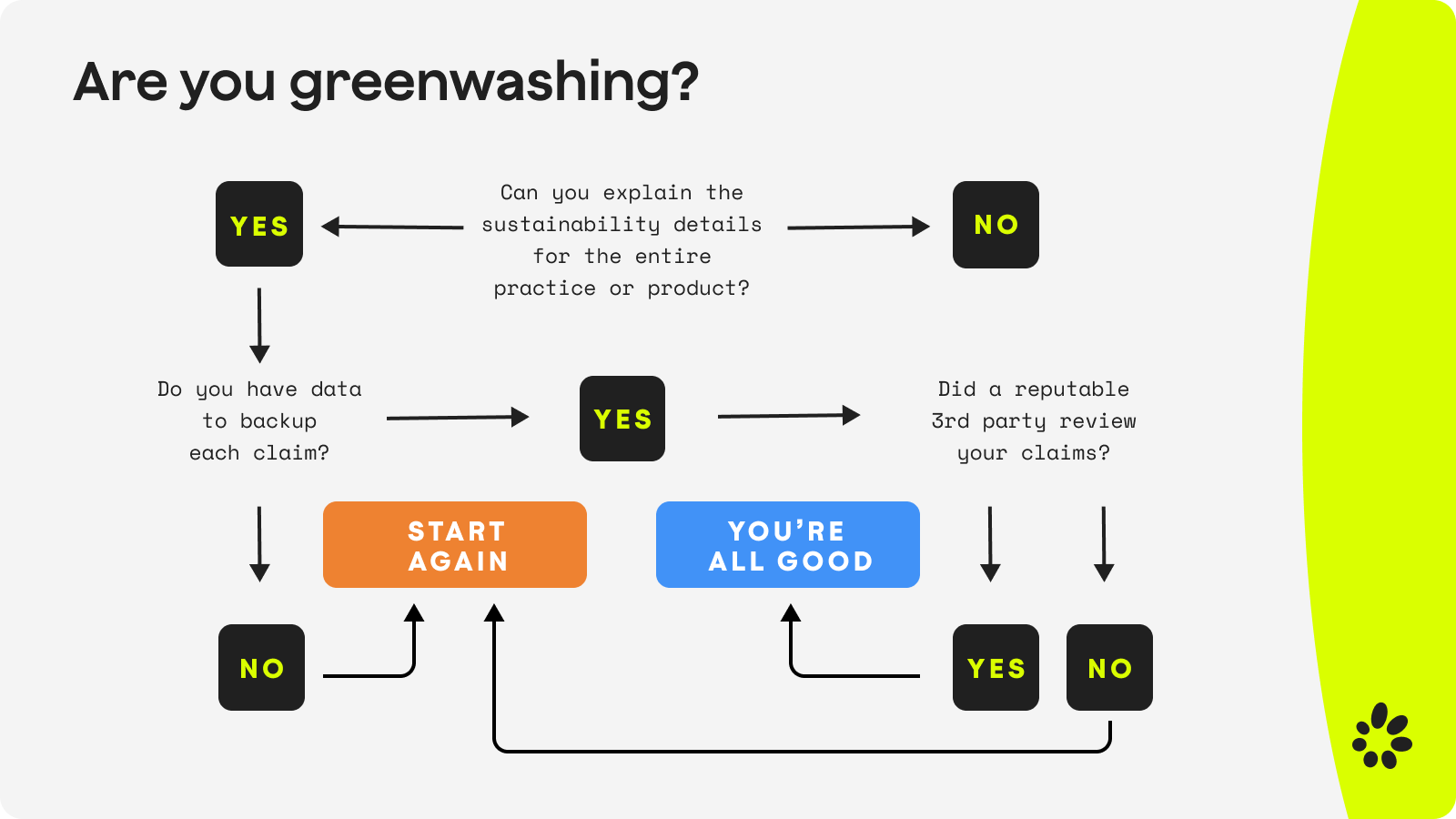Examples of Greenwashing
- Companies claiming to neutralise their emissions through the purchase of carbon credits without taking any other steps to reduce or avoid emissions within their own operations.
- Products labeled as "green" or "eco-friendly" without any certification or evidence to substantiate the claims.
- Companies emphasising a small segment of their operation that operates sustainably, while the majority of their practices remain harmful to the environment.
Carbon Credits and Greenwashing
While carbon credits themselves are not a form of greenwashing, they can be misused in ways that can be considered as greenwashing. Issues such as double counting, where the same emission reduction/removal is counted more than once, and the use of low-quality credits that don't yield their stated environmental impact, can both undermine the integrity of carbon neutralisation efforts. Additionally, companies may use carbon credits to give an appearance of environmental responsibility while continuing unsustainable practices.
How to Avoid Greenwashing

Trade Finance Global indicates that greenwashing incidents were up by 70% in 2023. In order to maximise global climate efforts, it is crucial to curb these figures. Companies and consumers ought to educate themselves on environmental issues and the true impact of products and practices.
When implementing sustainability measures, some key ways to prevent greenwashing include:
- Following a scientific approach where possible, such as that of the SBTi, IPCC, or the Oxford Principles
- Relying on recognised environmental certifications and standards in order to validate claims.
- Remaining as transparent as possible about sustainability practices and the impact of products or services.
- Focussing on actual emission reduction strategies within your own operations alongside the use of high-quality carbon credits.
- Developing and implementing a holistic sustainability strategy that goes beyond just offsetting emissions.
.svg)